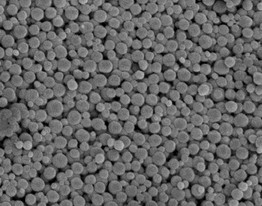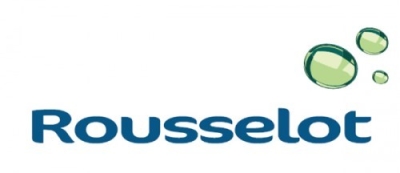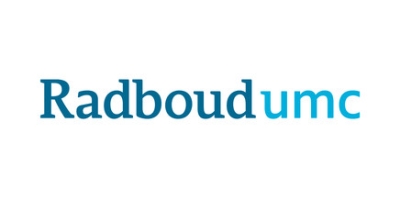Optimization of production of gelatin nanospheres for regenerative medicine
Gelatin nanospheres have recently emerged as promising carriers for (targeted) local delivery of therapeutic biomolecules. Still, gelatin nanospheres are currently produced by coacervation at labscale, which is associated with large batch-to-batch variability and low production volumes that have hampered industrial upscaling and clinical translation. Therefore, Radboud University Medical Center (Department of Biomaterials) and the world-leader in gelatin manufacturing (Rousselot NV) have joint forces to optimize the production of gelatin nanospheres by investigating the relationship between the physicochemical characteristics of gelatin and the resulting nanoparticles upon processing using two different chemical approaches.
A wide range of gelatins from Rousselot of different  origin, molecular weight distribution, and isoelectric point have been processed into nanospheres using both batch and flow chemistry in order to identify the optimal type of gelatin and processing method for industrial upscaling of gelatin nanosphere production. Based on this screening study, specific gelatins can be selected for further optimization studies. In addition, gelatin nanospheres have been surface-modified to vary their degree of hydrophobicity using hydrophobic esters. Investigations indicated that the type and degree of modification could highly alter the viscoelastic properties of hydrogels made of the gelatin particles. These results suggest that exploitation of interparticle hydrophobic forces can be considered as a promising strategy for production of soft colloidal materials (hydrogels) with enhanced viscoelastic properties.
origin, molecular weight distribution, and isoelectric point have been processed into nanospheres using both batch and flow chemistry in order to identify the optimal type of gelatin and processing method for industrial upscaling of gelatin nanosphere production. Based on this screening study, specific gelatins can be selected for further optimization studies. In addition, gelatin nanospheres have been surface-modified to vary their degree of hydrophobicity using hydrophobic esters. Investigations indicated that the type and degree of modification could highly alter the viscoelastic properties of hydrogels made of the gelatin particles. These results suggest that exploitation of interparticle hydrophobic forces can be considered as a promising strategy for production of soft colloidal materials (hydrogels) with enhanced viscoelastic properties.
Summarizing, this project has contributed to the ambitions of the Topsector LSH by developing a platform technology which can be useful for local delivery of therapeutic biomolecules from gelatin nanospheres. The obtained results are useful for industrial upscaling and potential commercialization of gelatin-based drug delivery vehicles.


